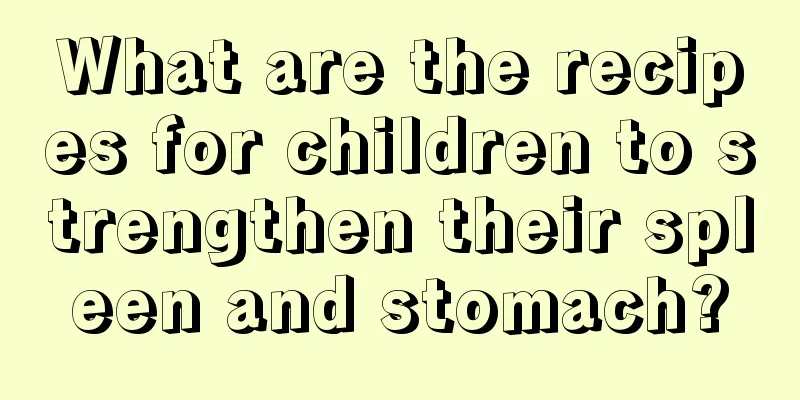What ointment is good for hand, foot and mouth disease

|
After a baby gets hand, foot and mouth disease, he may develop oral herpes and red papules on the limbs. Red papules bother many babies, and they keep scratching them with their hands. This not only fails to relieve the itching, but also causes the papules to spread. Many parents hope to use some ointments to resolve the rashes caused by hand, foot and mouth disease as soon as possible, but we need to follow the doctor's advice. So, what ointment is good for hand, foot and mouth disease? 1. Treatment 1. General treatment If there are no complications, the prognosis of this disease is generally good and most patients recover within a week. Mainly for symptomatic treatment. (1) First, isolate the sick child, and those in contact should be disinfected and isolated to avoid cross infection. (2) Provide symptomatic treatment and maintain good oral care. (3) Clothes and bedding should be clean, comfortable, soft, and changed frequently. (4) Cut your baby’s nails short and wrap your baby’s hands if necessary to prevent scratching the rash. (5) For babies with rashes on their buttocks, their urine and feces should be cleaned up at all times and their buttocks should be kept clean and dry. (6) You can take antiviral drugs and Chinese herbal medicines that clear heat and detoxify, and supplement vitamins B and C. 2. Combined treatment (1) Closely monitor changes in the patient's condition, especially the functions of important organs such as the brain, lungs, and heart; for critically ill patients, pay special attention to monitoring blood pressure, blood gas analysis, blood sugar, and chest X-ray. (2) Pay attention to maintaining the balance of water, electrolytes, acid and alkali, and protecting important organs. (3) Patients with increased intracranial pressure should be given appropriate treatment. (4) Patients with signs of respiratory failure such as hypoxemia and dyspnea should receive mechanical ventilation as soon as possible. (5) Maintain stable blood pressure. Treatment of other severe conditions: If DIC, pulmonary edema, heart failure, etc. occur, appropriate treatment should be given. 3. Antiviral drugs Because antiviral drugs are generally best used 24 to 48 hours before onset of illness. Often when we diagnose hand, foot and mouth disease, the most effective treatment stage has passed, and the use of antiviral drugs is not recommended now. 2. Prevention 1. Children should wash their hands with soap or hand sanitizer before meals, after defecation and after going out. Do not let children drink raw water or eat raw or cold food, and avoid contact with sick children. 2. Caregivers must wash their hands before contacting children, changing diapers, and handling feces, and dispose of waste properly. 3. Bottles and nipples used by infants and young children should be thoroughly cleaned before and after use. 4. During the epidemic period, it is not advisable to bring children to public places where people gather and air circulation is poor. Pay attention to maintaining a clean home environment, ventilate the room frequently, and dry clothes and quilts frequently. 5. Children should go to a medical institution promptly if they develop related symptoms. Sick children should not come into contact with other children. Parents should promptly dry or disinfect the sick children's clothes and disinfect the sick children's feces in a timely manner. Children with mild symptoms do not need to be hospitalized and should be treated and rest at home to reduce cross-infection. 6. Clean and disinfect toys, personal hygiene utensils, tableware and other items daily. 7. Child care units should conduct morning inspections every day. If any suspected sick child is found, they should be promptly sent to the hospital for treatment or have the child rest at home. Any items used by the sick child should be disinfected immediately. 8. When the number of children with the disease increases, report it to the health and education departments in a timely manner. According to the needs of epidemic control, local education and health departments may decide to take measures to close childcare institutions or primary schools. |
<<: Can hand, foot and mouth disease appear on the face?
>>: What are the symptoms of concussion in children?
Recommend
What to do if your 1-year-old baby doesn't have teeth
Baby is a child younger than child, and is a nick...
How old can babies eat mashed potatoes?
Potatoes, commonly known as potatoes, are a nutri...
What are the characteristics of infantile kyphosis?
Rickets is a systemic chronic nutritional disease...
Can babies eat yogurt at seven months old?
Mothers of seven-month-old babies want to feed th...
What to do if children have brain hypoxia
What to do with children's brain hypoxia is a...
What is the treatment for diarrhea in babies?
Autumn is coming soon. As the weather turns coole...
Blood in the stool in children
With the continuous development of modernization,...
What happens if a child has a fever but only his head is hot?
Children's physical development is immature c...
What causes children to have indigestion and stomach pain?
I always hear some parents say that their childre...
What is the cause of the baby's startle?
The arrival of a baby often brings a lot of happi...
How to treat anemia in children
Recently, many people's children have suffere...
What to do if your newborn has a thick tongue coating
Now many parents have reported that their babies’...
Can little girls drink honey water?
Because children's gastrointestinal functions...
What causes black spots on children's teeth?
In recent years, the phenomenon of black spots on...
Why do children's eyes shed tears?
Tearing tears is very common. Many people are pro...









